Middle East
What does the truce between the Houthis and the US mean for Yemenis? | Houthis
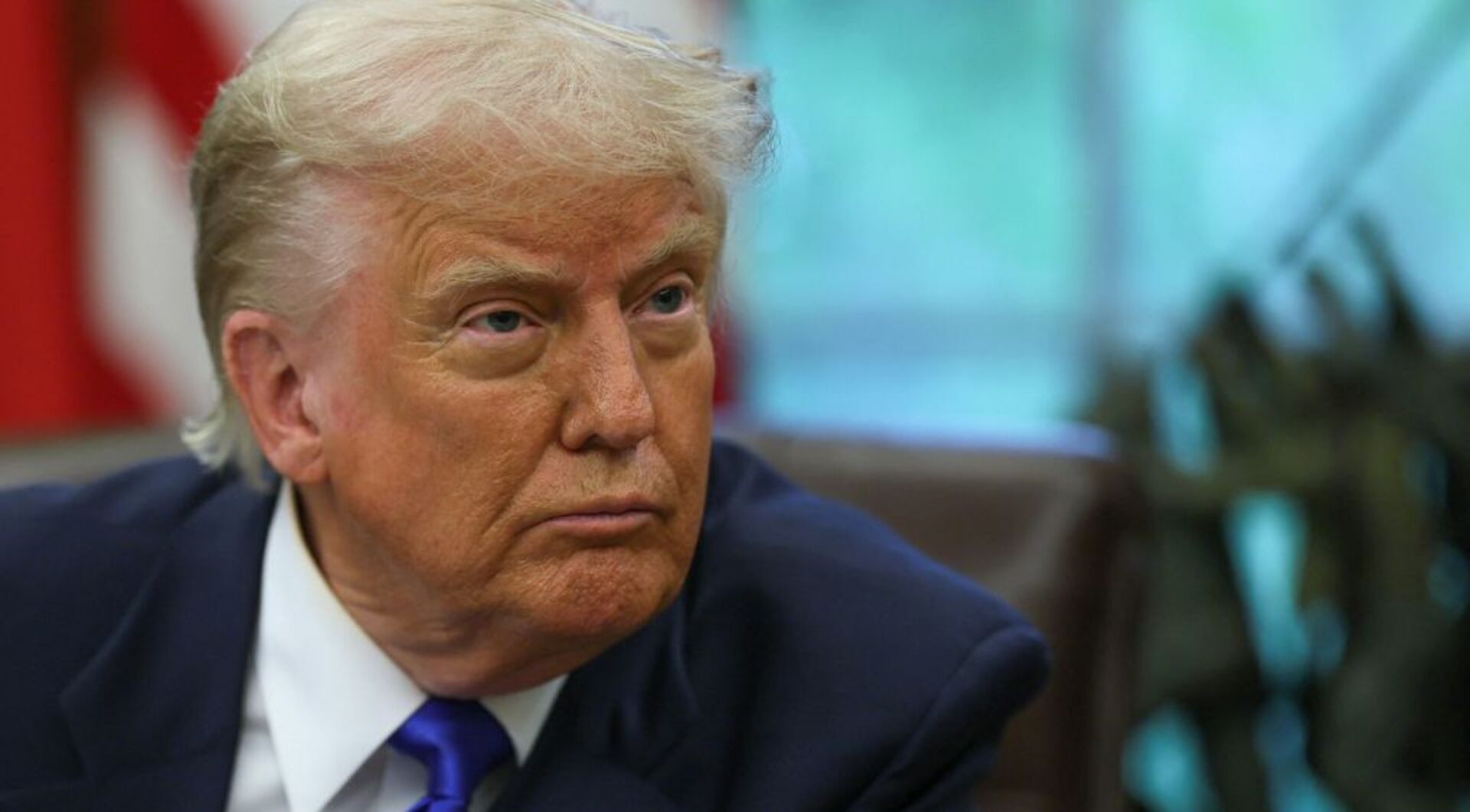
The United States and the Houthis have agreed to a ceasefire.
The Houthis, who control large areas of Yemen, began attacking Israel and commercial shipping and some US navy vessels in the Red Sea after Israel launched its war on Gaza in October 2023.
In response to Houthi attacks on shipping lanes, the US carried out attacks on the Iran-aligned group in Yemen.
Under the truce deal mediated by Oman, the US will halt its strikes on Houthi sites, and the Yemeni group will stop attacking US ships.
But the agreement does not include a truce in the conflict between Israel and the Houthis.
So, will Israel also stop its attacks? What does this all mean for the acute humanitarian crisis facing Yemenis?
Presenter: James Bays
Guests:
Maysaa Shuja al-Deen – Senior researcher, Sana’a Center for Strategic Studies
Ahmed al-Ashwal – Political and military analyst
Nabeel Khoury – Former US diplomat and former US deputy chief of mission to Yemen
Middle East
One killed, eight wounded as Israel hits Lebanon in major post-truce attack | Israel attacks Lebanon News
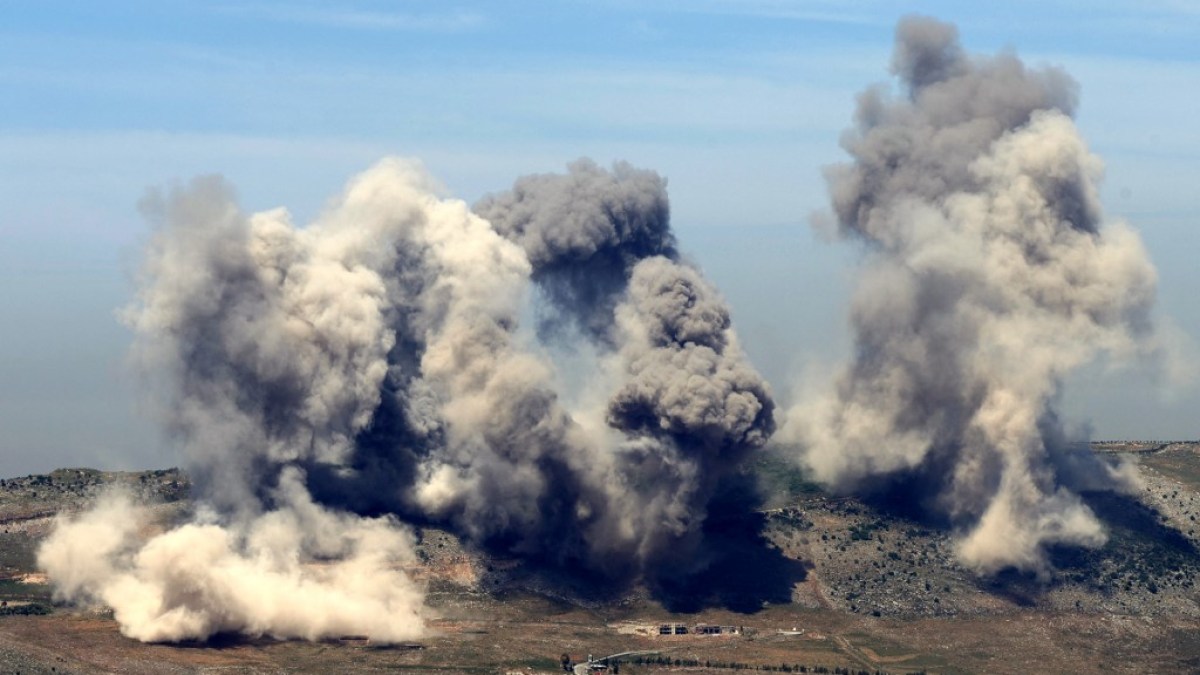
Lebanon’s Prime Minister Nawaf Salam condemns Israeli attacks, says ‘all ceasefire violations must end’.
Israel has launched one of its most intense aerial assaults on southern Lebanon since a truce halted last year’s war with Hezbollah, according to Lebanese officials and the Israeli military.
Air strikes on Thursday targeted several locations across the Nabatieh region, around 12km (7 miles) from the Israeli border. At least one person was killed and eight others injured, Lebanon’s Health Ministry said. Thick plumes of smoke rose from the bombed hilltops as residents fled the affected areas.
The Israeli army said its warplanes struck a “Hezbollah infrastructure site”, but gave no further details. The claim could not be independently verified.
There was no immediate response from Hezbollah, which had previously said it withdrew its fighters from the border following the United States-brokered ceasefire.
Lebanon’s President Joseph Aoun said in a short post on X that he was closely monitoring the situation in southern Lebanon after Israeli strikes hit the region.
Lebanese Prime Minister Nawaf Salam condemned the attacks. In a statement on X, he said: “All Israeli violations of UN Resolution 1701 and ceasefire agreements must come to an end. The Lebanese government has not – and will not – stop pushing for Israel’s full withdrawal from our territory.”
الدبشة pic.twitter.com/o54o2MwjX0
— المنشد علي بركات ( حساب جديد) (@AliBarakat2023) May 8, 2025
Although the truce officially ended hostilities, sporadic cross-border attacks have continued. Israel has regularly broken the truce and carried out air raids across southern Lebanon, also hitting Hezbollah-controlled neighbourhoods in Beirut’s southern suburbs.
Under the terms of the ceasefire, Hezbollah and other armed groups are not permitted to operate or store weapons south of the Litani River, while Israel is required to withdraw from southern Lebanon and allow the Lebanese army to deploy in the region. However, both sides have accused each other of violating the agreement.
Israel still occupies five strategic hilltops along the border. While rockets have been fired into Israel from Lebanese territory on two separate occasions, Hezbollah has denied involvement.
The recent escalation marks a sharp intensification of the conflict, rooted in Hezbollah’s support for Hamas during Israel’s ongoing war on Gaza.
Hezbollah’s deputy leader, Naim Qassem, has maintained that the group no longer keeps weapons in the border zone, in accordance with the truce.
Middle East
UN experts warn of ‘annihilation’ as Gaza deaths mount | Gaza News
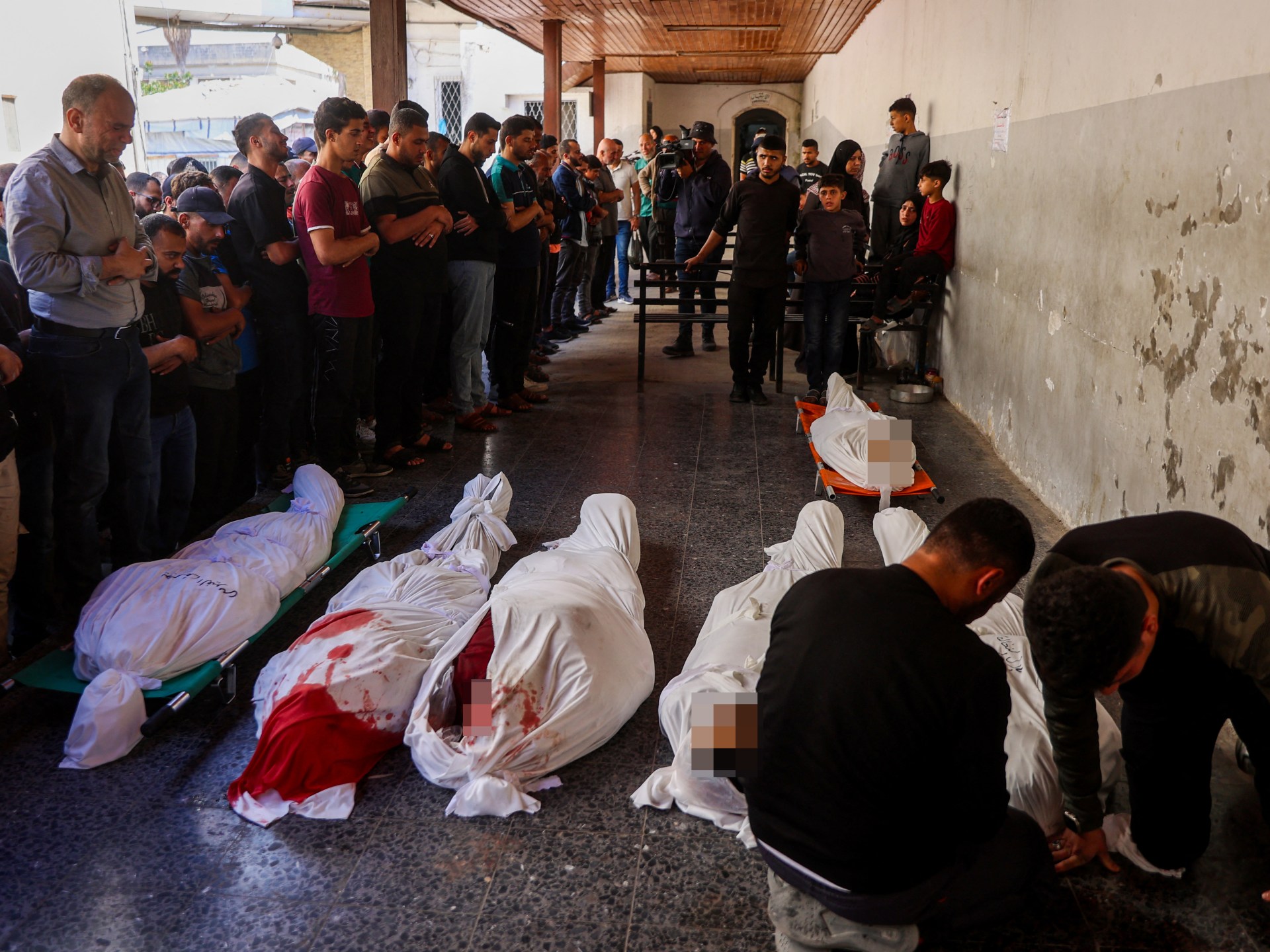
United Nations experts have demanded action to avert the “annihilation” of Palestinians in Gaza, after rescuers said Israeli strikes across the territory killed dozens of people.
A planned expanded offensive revealed by the Israeli military has drawn international condemnation, after UN agencies previously warned of a humanitarian catastrophe in the Palestinian territory, already devastated by 19 months of war.
More than 20 independent experts mandated by the UN’s Human Rights Council said on Wednesday that the world faced a “stark decision” to “remain passive and witness the slaughter of innocents or take part in crafting a just resolution”.
The experts implored the international community to avert the “moral abyss we are descending into”.
Israel’s broader offensive, approved by its government amid a two-month aid blockade on Gaza, would include displacing “most” of its residents, the military has said. The plan proposes seizing Gaza, holding on to captured territories, forcibly displacing Palestinians to southern Gaza and taking control of aid distribution along with private security companies.
France’s President Emmanuel Macron on Wednesday called the situation in Gaza “the most critical we have ever seen”.
Spain’s Prime Minister Pedro Sanchez said Madrid would present a draft resolution at the UN General Assembly aimed at “proposing urgent measures to stop the killing of innocent civilians and ensure humanitarian aid” in Gaza.
British Prime Minister Keir Starmer told parliament the situation in Gaza and the occupied West Bank was “increasingly intolerable”.
European Union foreign policy chief Kaja Kallas said that Brussels had made an offer to Israel “to distribute the humanitarian aid if they don’t trust the other actors there”.
More than a dozen Palestinians were killed by Israeli attacks in Gaza on Thursday, after 100 people were killed on Wednesday.
A significant number of those killed and injured in Gaza City on Wednesday were children, rescuers said.
Meanwhile, the World Central Kitchen (WCK), which ran one of the last bakeries still operating in Gaza, has announced it no longer has the supplies to cook meals or make bread in Gaza.
“Additional food and equipment are ready to be shipped to the border from Jordan and Egypt. Our vital work cannot continue without permission from Israel for this aid to enter,” the charity said in a statement.
Middle East
Reports of Israeli casualties in Rafah blast, as strikes kill 16 in Gaza | Israel-Palestine conflict News

An explosion in Rafah in the southern Gaza Strip has killed and injured Israeli troops from the Golani Brigade, who were detonating a building, according to Israeli websites.
There is currently an Israeli media blackout on the incident on Thursday and there has been no official comment from the government there yet.
Witnesses in Rafah told Al Jazeera of a large explosion, and Israeli helicopters trying to evacuate the wounded. There has been heavy fighting in the area, they said.
Al Jazeera’s Tareq Abu Azzoum, reports from Deir el-Balah, in central Gaza, that Hamas’s armed wing, the Qassam Brigades says it is engaging in “fierce point-blank clashes and confrontations with Israeli occupation forces operating in the El Geneina neighbourhood east of Rafah city”.
“There are more reports that a number of Israeli forces are trapped under the rubble of a building that had been previously rigged by explosives by Hamas in Rafah city. This has been a tactic that has been used by Hamas fighters to ambush Israeli ground forces”, Azzoum added.
Later the Qassam Brigades released this statement: “As part of the ‘Gates of Hell’ operations, we detonated a powerful explosive device targeting a patrol of 7 soldiers near the Omar Ibn Al-Khattab Mosque in Al-Tannour neighborhood, east of Rafah. We observed the dismembered bodies of several Israeli soldiers at the scene.”
Israeli Forces were said to be facing difficulties in evacuating the dead and injured from the site due to the intensity of the fighting. Footage broadcast by Israeli sources showed some helicopters ferrying soldiers to hospitals.
Al Jazeera’s Hani Mahmoud, reporting from Gaza City said: “The available information talks about a group of Israeli soldiers – this is part of the occupying forces in the city of Rafah – and they were in the process of placing explosive wires as part of the ongoing, systematic demolition of homes across Rafah City, where the vast majority of buildings were destroyed so far since the invasion of Rafah City.”
Mahmood also said that “eyewitnesses describe seeing military choppers moving along the borderline. They patrolled the area several times before landing in Rafah City. They also reported massive, heavy machine guns and explosions that kept going on for some time before it got quieter.”
In the meantime, Israeli air strikes have killed at least 16 Palestinians across the Gaza Strip, following a deadly 24-hour period in which more than 100 people lost their lives, according to medical officials.
New strikes on Thursday killed at least three people in separate attacks in Deir el-Balah and the Nuseirat refugee camp in central Gaza, Al Jazeera Arabic reported, quoting medical sources. In Shujayea, east of Gaza City, shelling killed another person and wounded several others.
Further north, Israeli warplanes targeted a home in Beit Lahiya, killing nine. Rescuers were still searching for a woman believed to be trapped beneath the rubble.
The attack site in Beit Lahiya was “full of displaced people”, said Mahmoud earlier.
“The owner of this residential home and the displaced people he hosted were killed inside this residential home,” he said. “Many others were reported with severe injuries and burns and transferred to the Indonesian Hospital, which is already overwhelmed.
“One single family just lost nine family members, including women and children, and more people are missing and trapped under the rubble.”
In Khan Younis, one girl was killed and four others wounded after Israeli artillery hit tents sheltering displaced families in the western part of the city.
The continuing assault on Gaza comes amid growing alarm that Israel’s total blockade of aid is pushing the enclave into famine.
![A Palestinian man embraces the body of his 5-year-old son, Adam Namrouti, who was killed in an overnight Israeli air strike on a UN school used as a shelter [File: Abdel Kareem Hana/AP]](https://www.aljazeera.com/wp-content/uploads/2025/05/AP25127349281832-1-1746612810.jpg?w=770&resize=770%2C513&quality=80)
‘We have no more food’
Israel’s blockade on Gaza – tightened on March 2 – has pushed the population deeper into crisis, cutting off aid and crippling humanitarian relief. On Wednesday, World Central Kitchen (WCK), one of the key food providers in Gaza, announced it had halted all cooking operations.
“We have no more food to prepare,” the aid group said, after exhausting flour and other basic supplies needed to run its soup kitchens and mobile bakeries. WCK had been providing at least 130,000 meals and 80,000 loaves of bread daily.
“The trucks are ready in Egypt, Jordan and Israel,” said WCK founder Jose Andres. “But they cannot move without permission. Humanitarian aid must be allowed to flow.”
The World Food Programme previously warned that its food stocks in Gaza had run dry, ending a vital lifeline for hundreds of thousands of Palestinians. The continuing blockade, aid agencies say, has accelerated the onset of famine. Malnutrition is now widespread, with humanitarian workers warning they can no longer treat or prevent hunger-related illnesses.
Rights groups have condemned the blockade as a “starvation tactic” and argue it may constitute a war crime.
Sean Carroll, president of Anera (American Near East Refugee Aid), told Al Jazeera that Gaza’s humanitarian crisis has reached a critical point, with aid deliveries plummeting. “We were delivering nearly a million meals a week, and we’ve only delivered a few thousand in the past 66 days,” he said, noting that stocks are depleted.
“I think governments have to use every diplomatic lever, every political lever, every economic lever to convince all parties that there needs to be a return to some semblance of delivering humanitarian aid. We are losing our humanity here,” said Carroll.
Scenes at the few remaining open aid centres are increasingly chaotic. Children, women and men jostle for shrinking rations as food distribution systems break down. Bakeries have shut and fuel shortages have left water distribution networks paralysed.
Israel threatens Iran
Elsewhere, tensions have flared beyond Gaza, with Israeli Defence Minister Israel Katz warning Iran that it could face the same fate as Hamas and Hezbollah. His remarks followed a Houthi drone attack near Israel’s Ben Gurion Airport.
“You are directly responsible,” Katz said on Thursday. “What we have done to Hezbollah in Beirut, to Hamas in Gaza, we will do to you in Tehran, too.”
Yemen’s Houthi rebels launched a ballistic missile that struck near Ben Gurion International Airport in Tel Aviv on Sunday, saying the attack was in support of Palestinians in Gaza.
The strike disrupted flights and prompted Israel to launch air strikes on Sanaa International Airport and power stations in Houthi-controlled areas, killing at least one and injuring dozens, according to Houthi reports.
Iran denied backing the Houthi assault. Despite a United States-Houthi ceasefire mediated by Oman on Tuesday, ensuring “freedom of navigation” in the Red Sea, Houthi spokesperson Yahya Saree said, “We will carry out more military operations against the Israeli enemy,” targeting Israel and its ships.
-

 Asia2 days ago
Asia2 days agoIndia launches military operation against Pakistan in major escalation
-

 Europe2 days ago
Europe2 days agoTrump’s Oval Office meeting with Carney didn’t reach Zelensky-level tension. But it wasn’t all neighborliness
-
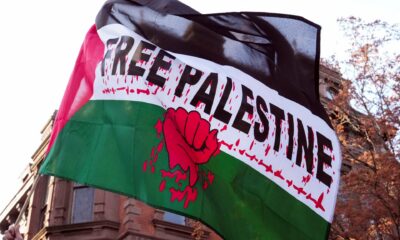
 Middle East2 days ago
Middle East2 days agoPalestine and the decline of the US empire | Israel-Palestine conflict
-

 Middle East2 days ago
Middle East2 days agoTrump says bombing of Yemen to stop as Oman confirms US-Houthi ceasefire | Israel-Palestine conflict News
-
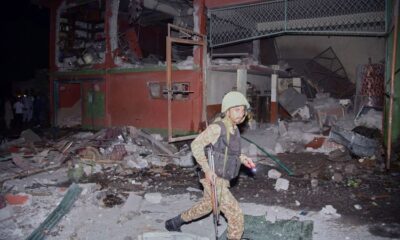
 Asia2 days ago
Asia2 days ago‘Operation Sindoor:’ Why India attacked Pakistan and conflict has escalated dramatically
-
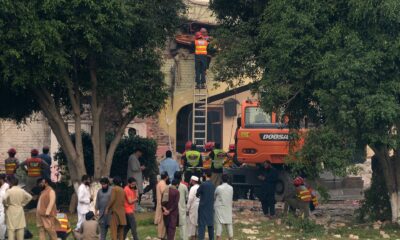
 Conflict Zones1 day ago
Conflict Zones1 day agoHow world leaders are reacting to India-Pakistan military strikes | Border Disputes News
-

 Lifestyle2 days ago
Lifestyle2 days agoThe Met Gala is over, but dandyism isn’t. Here’s how to dress like a dandy in everyday life
-

 Europe2 days ago
Europe2 days agoXi Jinping set to arrive in Moscow as Putin’s ‘guest of honor’ ahead of Victory Day military parade




